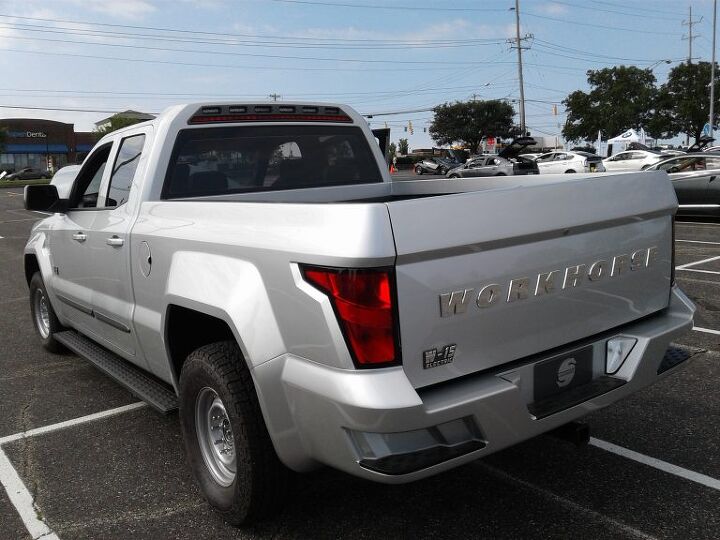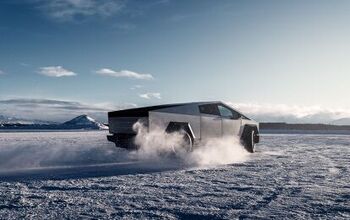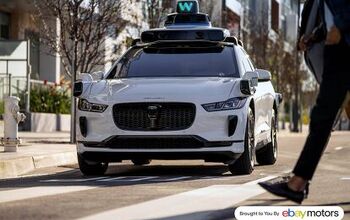Lordstown Long Shot? Skepticism Greets GM-Workhorse Talks

Yesterday’s news that General Motors is in talks to sell its mothballed Lordstown assembly plant to an affiliate of Cincinnati’s Workhorse Group was met with surprise and no shortage of doubt.
For starters, the company ended last year with 98 employees. It’s still a fledgling startup, eager to sell a range-extended light duty pickup alongside its electric step vans, some of which have found a home with UPS. Workhorse is chasing larger game, however, throwing its hat in the ring for the U.S. Postal Service’s lucrative next-generation van contract. Most observers believe Workhorse’s acquisition of the Lordstown plant hinges on securing that contract.
“We have a long way to go,” Ohio Gov. Mike DeWine told The Youngstown Vindicator following GM’s announcement, which followed a revealing tweet by President Donald Trump. “Cautious is probably the right word.”
According to GM, an “affiliated entity” led by Workhorse founder Steve Burns would acquire the facility, with Workhorse Group holding a minority stake.
“The first vehicle we would plan to build if we were to purchase the Lordstown Complex would be a commercial electric pickup, blending Workhorse’s technology with Lordstown’s manufacturing expertise,” Burns said.
A commercial pickup, in this case Workhorse’s W-15 extended-range truck, is not a step van. The company hopes to become the winning entry in the USPS’ Grumman LLV replacement program with a van based on its W88 chassis, offered as a 100-mile fully electric version or a range-extended model utilizing a three-cylinder BMW powerplant as a generator. That’s the same setup employed by the W-15.
There’s no shortage of competition for that contract.
“The development of the pickup will leverage the R&D performed for the USPS award, greatly accelerating the production process,” the company stated in a 2017 presentation.
Lordstown Assembly once held three shifts of workers building the Chevrolet Cruze before falling sales thinned its ranks. The plant’s footprint is 6.2 million square feet, greatly exceeding Workhorse’s current 300,000 square feet of production space. Only a huge contract, backed up by a lot of capital, could turn Lordstown into a Workhorse plant.
“It’s not the day to celebrate yet for the Mahoning Valley or Lordstown or the workers,” DeWine said. “For this really to work, it’s going to be important for Workhorse to get the contract with the postal service.”
Workhorse has never been profitable; the company’s 2018 finances reveal sales of $763,173, expenditures of $21.8 million, and $1.5 million in available cash (per NBC affiliate WKYC). In January, Workhorse secured $35 million in financing from Marathon Asset Management, a move Seeking Alpha called “effectively another last-ditch effort to avoid bankruptcy.”
Dave Green, the UAW Local 1112 president who represented Lordstown workers, didn’t know what to make of the development, saying, “It’s really too soon to say how it will affect our members.”
The nature — and financial resources — of Workhorse’s affiliated entity is unknown at this point. Despite that, as well as the still-undecided nature of the U.S. Postal Service contract, Workhorse’s stock (WKHS) rose 214 percent yesterday, closing at $2.65.
[Image: Corey Lewis/TTAC]

More by Steph Willems
Latest Car Reviews
Read moreLatest Product Reviews
Read moreRecent Comments
- Redapple2 Dear lord ! That face. HARD NO.
- Urlik Let’s ban for all. Having that data anywhere leaves it open to the Chinese government potentially hacking systems to get the data.
- Redapple2 Gen 1 - 8/10 on cool scale.Gen 2 - 3/10.
- SCE to AUX "...to help bolster job growth and the local economy"An easy win for the politicians - the details won't matter.
- Kjhkjlhkjhkljh kljhjkhjklhkjh so now we will PAY them your tax money to build crappy cars in the states ..



































Comments
Join the conversation
I believe an electric work truck makes a lot of sense if priced competitively. At the moment they are not competitive for the average trades person. I do believe that an EV truck or van with the current EV range has a much wider market than most believe. Most carpenters, plumbers, etc really don't do many miles a day as most work locally. Pickups need to move back to where they were, simple affordable tools. The problem here is most are empty, tow nothing middle class pose wagons. How big is the market, the mass market for this type of vehicle? This question makes you ask how many manufacturers can this limited market support? I know some will say look at GM, Frod, FCA and the Asians, Germans etc. But look at the cost of their conventional powered pickups. Diesel should be the transitioning energy for larger vehicles as we move towards EV work trucks. So, rather than trying to market a high end vehicle this vehicle needs to be a bare as bones to reduce entry costs.
I don't read wordy posts. get to the point or stay home.